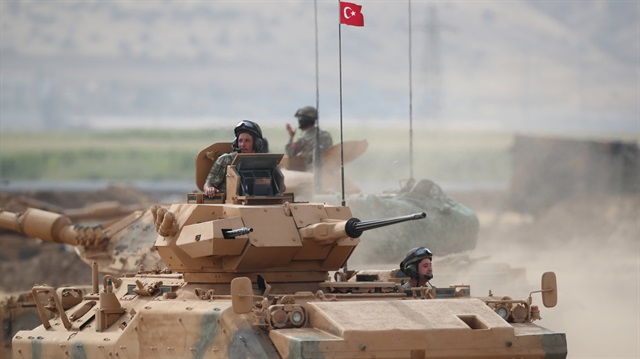
Iraq plans to take control of the borders 'in coordination' with Iran and Turkey, cutting off a major source of KRG revenue
Military responses in reaction to the Kurdish Regional Government’s (KRG) refusal to hand over border crossings to the Iraqi government.
The Kurdistan Regional Government (KRG) has refused to hand over control of its border crossings to the Iraqi government, as demanded by Iraq, Iran and Turkey in retaliation for the independence referendum.
The Iraqi Defense Ministry has said it planned to take control of the borders "in coordination" with Iran and Turkey, without indicating whether Iraqi forces were to move toward the external border posts controlled by the KRG from the Iranian and Turkish side.
Following Iraqi Chief of General Staff Osman Ganimi’s visit, it was decided to hold a joint military drill with Special Forces officers.
After Ganimi’s visit to Iran, a similar decision was reached. Iran and Iraq will conduct joint border drills within days. Top military commanders "agreed on measures to establish border security and receive Iraqi forces that are to be stationed at border posts."
The control of four border gates, which provide Erbil with significant revenue, will soon change ownership as a result of the military operations.

The operations near the border gates by Iraq, Turkey and Iran span across four border gates. Iraqi soldiers will take over the Habur border gate with the support of Turkish troops. KRG normally uses the Habur border gate for trade, and altering this route is on the agenda.
Among the planned routes, there is a plan to connect Mosul via Zaho, Zumar and Bashika. After the commissioning of the road, it is stated that the Turkish soldiers in Bashika may secure the trade route.
In Iran, three border gates are under the control of the KRG: Hacı Omeran-Temerçin Border Gate in Çoman county bounded to Erbil in the north, Başmak Border Gate in the south of Suleymaniye in the east and Peravizhan Border Gate in the town of Kelar.
With the operations to begin soon, the control will be taken over by the central government with Iraqi military support. While it is expected that the security of the trade routes will be ensured by Iraqi troops, it is stated that Turkey and Iran will take charge if necessary.
Together with the control of border gates to Baghdad, Erbil will be deprived of a major source of income.
Turkey, which has already threatened economic sanctions and a military response to any security challenges posed by the referendum result in neighboring northern Iraq, has threatened to cut off the Kurds' oil export lifeline - a pipeline that runs through Turkish territory.
Backed by Ankara and Tehran, the Iraqi government has demanded that the KRG cancels the result of the referendum or face sanctions, international isolation and possibly a military intervention.
Monday's illegitimate referendum saw Iraqis in KRG-controlled areas -- and in a handful of territories disputed between Erbil and Baghdad, including ethnically mixed Kirkuk and Mosul -- vote on whether or not to declare independence from Iraq's central government.











